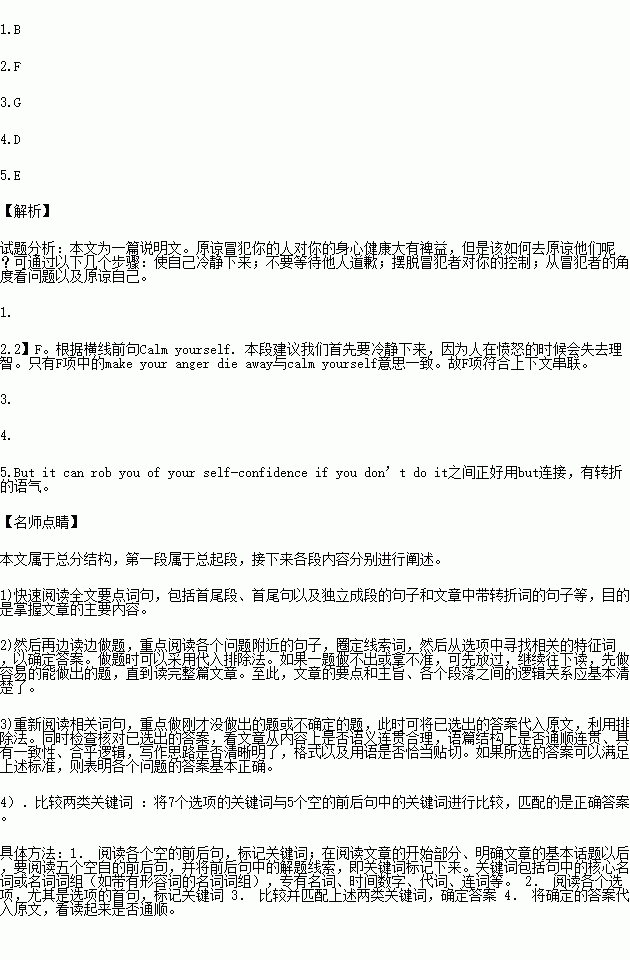题目内容
七选五
Forgiveness
To forgive is a virtue, but no one has ever said it is easy. When someone has deeply hurt you, it can be extremely difficult to let go of your hate. However, forgiveness is possible, and it can be surprisingly beneficial to your physical and mental health. People who forgive show less sadness, anger and stress and more hopefulness, according to a recent research.____ 1.__
Try the following steps:
Calm yourself. ____2.__ You can take a couple of breaths and think of something that gives you pleasure: a beautiful scene in nature, or someone you love.
Don’t wait for an apology. Many times the person who hurt you does not intend to apologize. They may have wanted to hurt you or they just don’t see things the same way. ____3.____ Keep in mind that forgiveness does not necessarily mean becoming friends again with the person who upset you.
Take the control away from your offender(冒犯者). Rethinking about your hurt gives power to the person who causes you pain. Instead of focusing on your wounded feelings, learn to look for the love, beauty and kindness around you.
___4.___ If you understand your offender, you may realize that he or she was acting out of unawareness, fear, and even love. You may want to write a letter to yourself from your offender’s point of view.
Don’t forget to forgive yourself. ___5.__ But it can rob you of your self-confidence if you don’t do it.
A. Why should you forgive?
B. How should you start to forgive?
C. Recognize the benefits of forgiveness.
D. Try to see things from your offender’s angle.
E. For some people, forgiving themselves is the biggest challenge.
F. To make your anger die away, try a simple stress-management technique.
G. If you wait for people to apologize, you could be waiting an awfully long time.
 全优点练单元计划系列答案
全优点练单元计划系列答案
